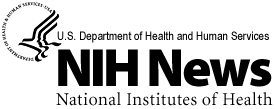
Embargoed for Release: January 3, 2006
nhlbi_news@nhlbi.nih.gov
301-496-4236
Ask for press officer on duty
Embargoed for Release: January 3, 2006
Media Availability: Low-Fat Dietary Pattern & Weight Change - the WHI Dietary Modification Trial
Results of the first study on the long-term effects of a dietary pattern low in fat and high in carbohydrates suggest that a low-fat eating pattern does not lead to weight gain. The new Women's Health Initiative (WHI) study examined the relationships between weight changes in postmenopausal women and specific changes in types of food eaten. Women in the intervention group were counseled to decrease fat intake to 20 percent of calories and to replace calories from fat with calories from vegetables, fruits, and grains (with an emphasis on whole grains) -- but were not told to cut calories. The study was designed to test whether a low-fat, increased carbohydrate diet would reduce the risk of cancer and cardiovascular disease but was not a weight loss study. The control group received diet-related education materials only. Participants in the low-fat, increased carbohydrate group initially lost about 5 pounds and after 9 years they weighed about 1 pound less than the usual diet control group.
"Low-Fat Dietary Pattern and Weight Change Over 7 Years -- the Women's Health Initiative Dietary Modification Trial," will be published in the January 4 issue of the Journal of the American Medical Association. The study was funded by the National Heart, Lung, and Blood Institute (NHLBI) of the National Institutes of Health.
WHI Project Officer Jacques Rossouw, M.D., of NHLBI is available to provide general comment on the WHI and on this latest study's findings that a low-fat eating pattern does not result in weight gain in postmenopausal women. According to Dr. Rossouw, a low-fat, high carbohydrate dietary pattern may help to contain the age-related rise in body weight seen in post-menopausal women. NHLBI nutritionist Eva Obarzanek, Ph.D., can discuss how this study relates to other research on weight loss.
To schedule interviews, contact the NHLBI Communications Office at 301-496-4236.
NHLBI Communications Office
nhlbi_news@nhlbi.nih.gov
301-496-4236
Ask for press officer on duty














